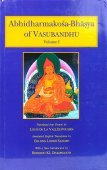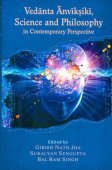Cognition: 1 definition
Introduction:
Cognition means something in Hinduism, Sanskrit. If you want to know the exact meaning, history, etymology or English translation of this term then check out the descriptions on this page. Add your comment or reference to a book if you want to contribute to this summary article.
In Hinduism
Yoga (school of philosophy)
Source: ORA: Amanaska (king of all yogas): A Critical Edition and Annotated Translation by Jason BirchCognition (of Brahma) is denoted by the Sanskrit term Grāhin, according to the Viṣṇudharma verse 96.28cd-29ab.—Accordingly, while teaching the attainment of non-duality the practice of Yoga: “When the [mind] has ceased because of the power of Yoga, cognition of Brahma (brahmagrāhin) arises [for the Yogin]. The supreme Brahma should be cognized by the mind of a Yogin, O king”.

Yoga is originally considered a branch of Hindu philosophy (astika), but both ancient and modern Yoga combine the physical, mental and spiritual. Yoga teaches various physical techniques also known as āsanas (postures), used for various purposes (eg., meditation, contemplation, relaxation).
See also (Relevant definitions)
Partial matches: Cognition, Te.
Starts with: Cognition of non-existence.
Query error!
Full-text (+417): Jivhavinnana, Pratyaksha, Pramana, Anubhava, Paroksha, Pravritti, Paramarsha, Parijanana, Samanya, Adhyavasaya, Sotavinnana , Manaolakha, Manovinnana, Dharmakirti, Cakkhuvinnana, Tyaga, Pratyaya, Adhokshaja, Pravrittivijnana, Atmaprabodha.
Relevant text
Search found 208 books and stories containing Cognition, Cognitions, The cognition; (plurals include: Cognitions, Cognitionses, The cognitions). You can also click to the full overview containing English textual excerpts. Below are direct links for the most relevant articles:
Tattvasangraha [with commentary] (by Ganganatha Jha)
Verse 39 < [Chapter 1 - Examination of the Doctrine of Primordial Matter (prakṛti)]
Verse 252 < [Chapter 7 - Doctrine of the Self (ātman, ‘soul’)]
Verse 1861-1862 < [Chapter 22 - Lokāyata—Materialism]
Brahma Sutras (Shankaracharya) (by George Thibaut)
III, 3, 1 < [Third Adhyāya, Third Pāda]
III, 3, 5 < [Third Adhyāya, Third Pāda]
II, 2, 28 < [Second Adhyāya, Second Pāda]
Padarthadharmasamgraha and Nyayakandali (by Ganganatha Jha)
Text 45: The Mind (Manas) < [Chapter 5 - Of the Mahābhūtas (Ultimate Material Substances)]
Text 85: On Number (Saṃkhyā) < [Chapter 6a - On Qualities]
Text 156: On Viśeṣa < [Chapter 8 - On Viśeṣa]
Tattvabindu of Vachaspati Mishra (study) (by Kishor Deka)
Chapter 3 - Refutation of the second view (varṇavāda) on verbal knowledge
Part 7 - Refutation of Sphoṭa by Vācaspati Miśra < [Chapter 2 - Sphoṭavāda and its refutation by Vācaspati Miśra]
Part 2 - Acceptance of the Abhihitānvaya-vāda < [Chapter 6 - Abhihitānvaya-vāda of the Bhāṭṭa Mīmāṃsakas]
Brahma Sutras (Ramanuja) (by George Thibaut)
Sutra 2.2.27 < [Second Adyaya, Second Pada]
Sutra 2.2.28 < [Second Adyaya, Second Pada]
In cases of Scripture conflicting with Perception, Scripture is not stronger. The True cannot be known through the Untrue < [First Adhyaya, First Pada]
Vaisheshika-sutra with Commentary (by Nandalal Sinha)
Sūtra 8.1.11 (The exception explained) < [Chapter 1 - Of Presentative Cognition]
Sūtra 8.1.9 (Combination as well as Attribute is a a use of Cognition) < [Chapter 1 - Of Presentative Cognition]
Sūtra 7.1.12 (Above continued) < [Chapter 1 - Of Colour, Taste, Smell, and Touch, and Magnitude]
Related products


